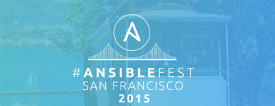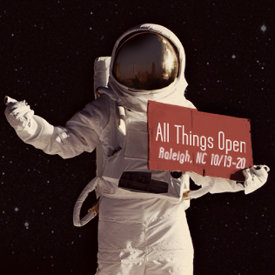The FOSS Force Readers’ Poll
 How do you receive and send your email? Inquiring minds want to know.
How do you receive and send your email? Inquiring minds want to know.
Last week’s article about Mozilla thinking of kicking Thunderbird out of the house to stay with friends started us thinking. For some reason, probably because our thoughts were on other things, such as the difference between the java in our cup (Chock full o’ Nuts, which has no nuts, by the way) and the Java on our machines (which has no Chock full o’ Nuts — go figure), it never occurred to us that the mobile revolution might’ve changed the way folks use email more than we’d realized.


 Mozilla wants to shed itself of Thunderbird, its popular cross platform email client. Although widely used on GNU/Linux, OS X and on Windows, the organization now seems to pretty much view it as a liability.
Mozilla wants to shed itself of Thunderbird, its popular cross platform email client. Although widely used on GNU/Linux, OS X and on Windows, the organization now seems to pretty much view it as a liability. The Thanksgiving holiday really put a damper on FOSS developments this week — but that doesn’t mean there’s nothing to report. On the contrary. So without further adieu, and on the heels of Thanksgiving, help yourself to another slice of…
The Thanksgiving holiday really put a damper on FOSS developments this week — but that doesn’t mean there’s nothing to report. On the contrary. So without further adieu, and on the heels of Thanksgiving, help yourself to another slice of…
 Although the demo is web-based, the team has been able to construct the software so the entire thing is local, meaning little or no latency between hitting enter and having the text replicated to speech.
Although the demo is web-based, the team has been able to construct the software so the entire thing is local, meaning little or no latency between hitting enter and having the text replicated to speech. Linux Foundation looks to Open APIs: After corralling the widely divergent world of containers, the Linux Foundation now sets its sights on the API economy and making application program interfaces, or APIs, easier to find, according to a
Linux Foundation looks to Open APIs: After corralling the widely divergent world of containers, the Linux Foundation now sets its sights on the API economy and making application program interfaces, or APIs, easier to find, according to a 


 In addition, related to the purchase or not, Ansible has also started getting some traction at this week’s
In addition, related to the purchase or not, Ansible has also started getting some traction at this week’s 
 The odd thing was that if you didn’t know that attendance was up, you might’ve thought that the numbers were actually going down.
The odd thing was that if you didn’t know that attendance was up, you might’ve thought that the numbers were actually going down.